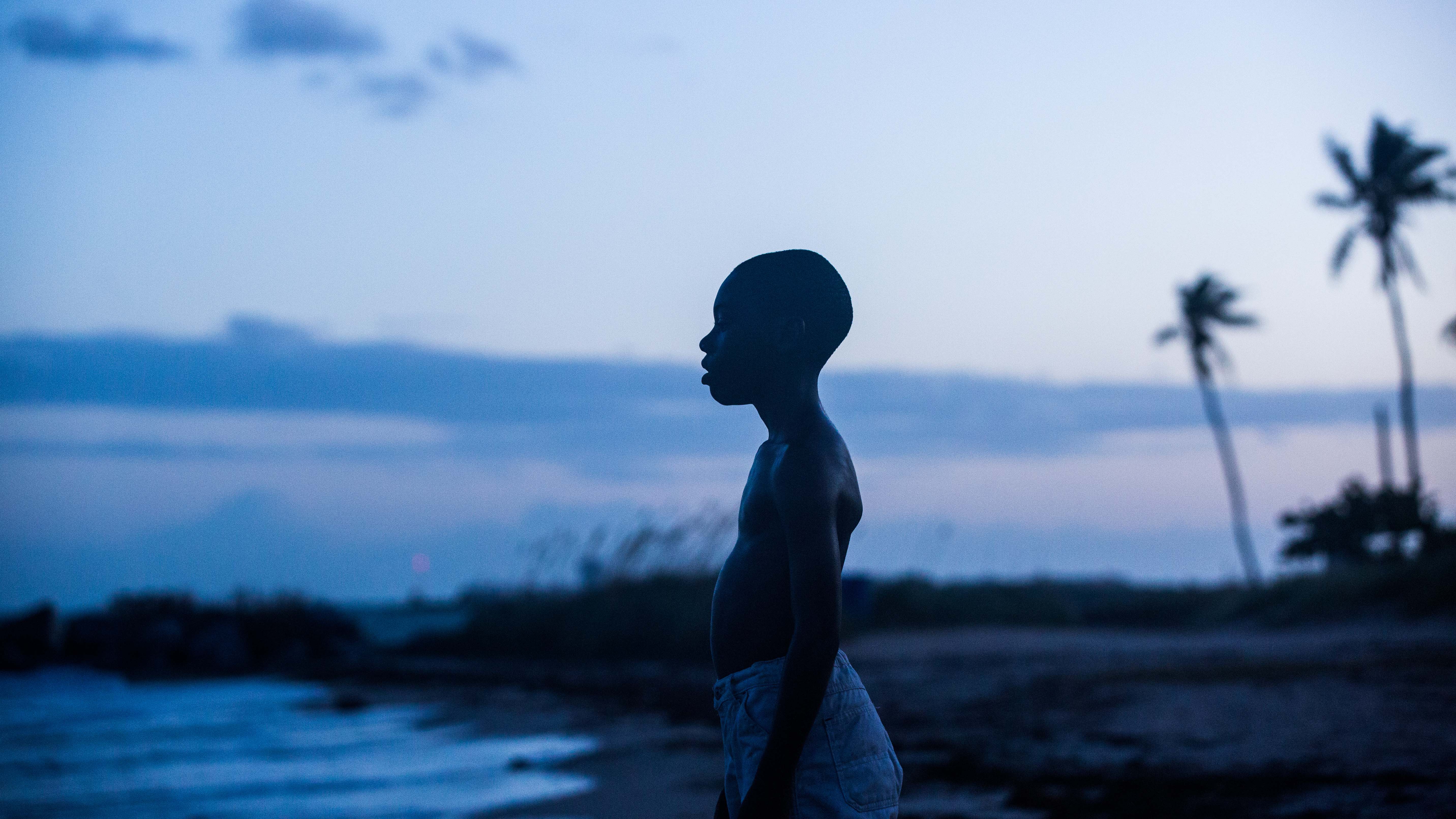Moonlight
There is a difficulty with reviewing a film like Moonlight – the fear that if you hype it up too much or give too much away about it, it will lessen the impact on the viewer. That would be a massive shame, and it would take a lot away from it. I sat down to watch Moonlight as a begrudged obligation – just something I had to review, and that was that – but I found myself enthralled by the movie. It is both grand and intimate, and it manages to tell a story whilst communicating with the viewer on another level entirely. Moonlight is graceful and artful, and makes for essential viewing.
The film follows the life of Chiron, a young man in Miami during the ‘War on Drugs’ era. Chiron struggles to deal with his dysfunctional home life as he comes of age and begins to discover his sexuality. The story of his struggle to find himself is told across three defining chapters in his life, following Chiron and those who play an important part in his formation – he experiences ecstasy, pain and the beauty of falling in love whilst grappling with his own homosexuality.
Moonlight is, in many ways, a character study, and one that lets us dig into Chiron’s psyche at different stages of his life (and when we dig, we dig deep). Chiron’s three actors create one complete character, and the Chiron that Trevante Rhodes plays at the end is every inch a natural evolution of the eight-year-old Alex Hibbert. The three show us the character’s vulnerability, and how it is masked throughout the film.
It is thematically rich throughout
What is important is that the film does not pigeonhole, and it doesn’t conform to the easy black stereotypes cinema usually does. Hence the film’s first human core is a drug dealer played by Mahershala Ali – director Barry Jenkins presents him as a person, not just as the preconceived notion of him. He cares for Chiron, yet he makes decisions that break his heart, and he teaches the boy that what is on the outside is not everything. The people presented here are people, be it Janelle Monae’s role model, or Naomie Harris’ frightening turn as his drug-addicted mother.
It’s quite a trick for a life to be cut down into three 40-minute chunks, and yet still feel like a complete story – the cohesiveness of the film as a whole, especially considering it doesn’t take the viewer by the hand throughout, is an excellent job. Moonlight offers us more than just a story, though. It looks at big questions – what does it mean to be black in America? How can young men conform to the values of masculinity placed upon them? – and is pleasingly open about them. It is thematically rich throughout, anchored by the strength of its quietly powerful performances to get the audience to think and feel, and it recognises the value of leaving things unsaid to really hit home.
Hopefully I won’t have bigged this film up too much and, if I have, it is for entirely just reasons. It’s rare than you find a film that gives us three-dimensional characters and encourages us to care for them, one that favours its gentle and compelling drama instead of overblown action and filling in all the blanks, one that feels quite this gritty whilst also managing to be uplifting and insightful. If you care for intelligent, well-made and morally complex film, I couldn’t recommend Moonlight enough to you.

Comments